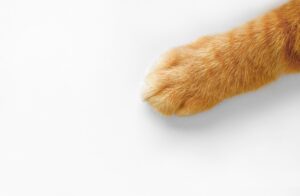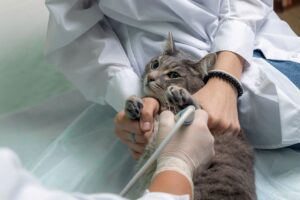What is FIP?
Feline Infectious Peritonitis (FIP) is a devastating viral disease caused by a mutation of the feline coronavirus (FCoV). It primarily affects young cats and those with weakened immune systems. FIP comes in two forms:
- Wet FIP: Characterized by fluid buildup in the abdomen or chest, leading to difficulty breathing and severe discomfort.
- Dry FIP: Involves granulomatous lesions in organs like the liver, kidneys, and brain, causing neurological symptoms and organ failure.
Historically, FIP was considered a death sentence, with no effective treatment available. However, recent advancements in antiviral therapies have revolutionized the fight against this disease.
What is GS-441524?
GS-441524 is a nucleoside analog antiviral drug that inhibits the replication of the FIP virus. It was developed based on extensive research and has shown remarkable efficacy in treating both wet and dry forms of FIP.

How Does GS-441524 Work?
- The drug mimics the building blocks of viral RNA, causing the virus to incorporate it into its genetic material.
- This disrupts viral replication, effectively stopping the virus from spreading and allowing the cat’s immune system to recover.
Treatment Protocol:
- Dosage: Typically 6-10 mg/kg daily, depending on the severity of the condition.
- Duration: 12 weeks of treatment, followed by an 8-week observation period to ensure no relapse.
- Forms Available: Injectable and oral tablets, with tablets being a convenient and stress-free option for many cats and their owners.
Success Rates:
Clinical studies and real-world cases have shown that GS-441524 has a success rate of over 80% when treatment is started early and adhered to strictly. Cats often show improvement within days, with full recovery achievable in most cases.

Why Choose GS-441524 Tablets?
- Convenience: Easier to administer than injections, reducing stress for both cats and owners.
- Effectiveness: Proven to be as effective as the injectable form when dosed correctly.
- Support: Many suppliers, like CFC, provide guidance and support throughout the treatment process.
Conclusion:
FIP is no longer a hopeless diagnosis. With GS-441524, thousands of cats have been given a second chance at life. If your cat has been diagnosed with FIP, don’t lose hope—reach out to your veterinarian or a trusted supplier to explore treatment options.

